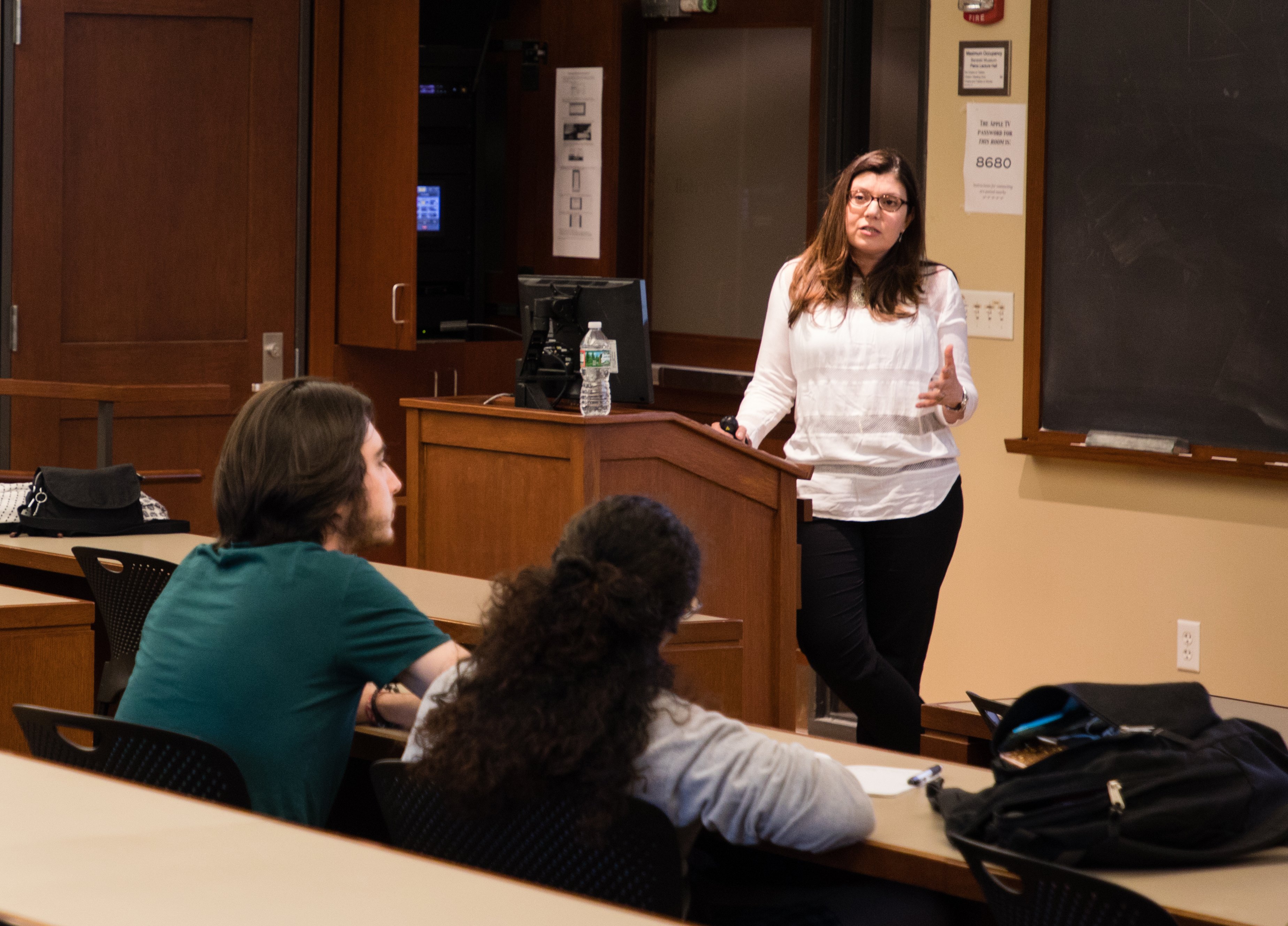

Zahera Harb, a senior lecturer of international journalism at City, University of London, gave a talk titled “Reporting Muslims and Arabs in Anglo-American Media” on Monday, April 17.
Harb worked for Lebanese and international media organizations and was a producer and news anchor of a number of Lebanese broadcast programs before becoming a review editor for the Journal of Media Practice. She has also worked on several political and social documentaries and reported for BBC Arabic and CNN World Report.
Harb began by discussing the ways in which media representations of Islam and Muslims have been reductive. “Muslims are homogenized as backward, irrational, unchanging, fundamentalists, threatening and manipulative in the use of their faith for political reasons,” she said.
For many British and American journalists, Harb said that “Arab” equates to “Muslim,” and to use either word in a story presents readers with a set of preconceived, mostly negative stereotypes. After the 9/11 terrorist attack in 2001, “Islam was used to demonize enemies,” she said.
After the 2015 terror attacks in Paris, the BBC incorrectly called Egyptian Waleed Abed El Razeq one of the perpetrators after French magazine Le Point reported that his passport was found near the site of a bombing. Twitter went viral with hoaxes as he was lying critically injured in the hospital, Harb said, until the Egyptian ambassador said the French police had filed no charges against Razeq.
“BBC … admitted that they took Le Point’s statement as fact, face value, without verifying with police before broadcasting,” Harb said. “Just because an Egyptian passport was found at the scene, it was automatically assumed and taken for granted by BBC reporters, who usually in their everyday work have to verify their information with three different sources before broadcast.”
Harb also discussed an instance in November of 2015 when The Sun, a UK newspaper, published on its front page the headline “1 in 5 Brits Muslims’ sympathy for jihadis.” Harb said that The Sun, which contracted a separate company to conduct the survey, had interpreted the survey results for its own gain.
“Even the people who conducted the survey said, ‘We did not ask about sympathy with ISIS [Islamic State of Iraq and Syria]. We did not ask about sympathy with jihadis. We asked about sympathy with those fighting against the Assad regime in Syria,’” Harb said.
A lack of context, either on purpose or out of ignorance, is a common feature of Anglo-American reporting on Muslims, said Harb.
She concluded by emphasizing that journalistic texts are products of a variety of cultural, social and political factors. Many Anglo-American journalists, however, often apply their own personal perceptions of Muslims and the Arab world in their coverage.
“The urge to rush to publish or broadcast makes them omit context,” she said. “Lack of specialized knowledge makes it easier for many to actually retreat in their coverage to preconceived concepts and understanding of the ‘other’ — and, in this case, Arab Muslims.”
A Q&A session followed, during which students asked about the role of law in holding journalists accountable and Hollywood’s negative portrayals of Arabs.
The talk was sponsored by the Middle Eastern Students and Studies Association (MESSA), the Five College Lecture Fund and the Department of Religion.
MESSA Co-President Mohamed Ramy ’18, who attended the talk and helped organize the event, appreciated Harb’s analysis of the way media often overgeneralize Arabs and Muslims.
“In the Arab world, we have 28 different states that are insanely different, that want different things from different countries, that have different stances on Israel — one of the falsehoods is that all Arabs are against Israel,” Ramy said. “I think journalism ... is consistently and tragically missing all the nuances that pertain to the Arab people as individuals ... [Harb] really highlighted it well when she was discussing how you can devise a statistic basically to sell your own version of truth.”